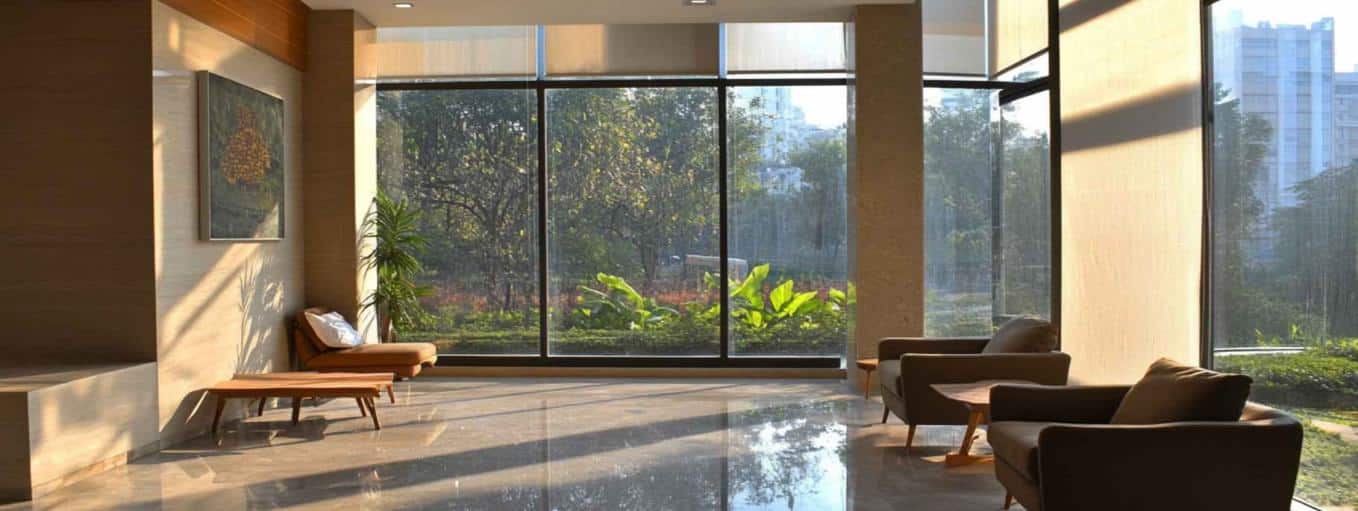Understanding Solar Control Glass: Enhancing Comfort and Efficiency in Modern Architecture
In the realm of contemporary architecture, the integration of advanced materials is paramount to achieving both aesthetic appeal and functional efficiency. One such innovation is solar control glass, a specialized glazing solution designed to regulate the amount of solar heat and light entering a building.
This blog delves into the intricacies of solar control glass, exploring its benefits, applications, and the role of reputable solar control glass manufacturers in providing high-quality solutions.
What is Solar Control Glass?
Solar control glass is engineered to manage the transmission of solar energy through windows and facades. By incorporating coatings or tints, this glass minimizes heat gain and glare, while allowing optimal natural light to permeate indoor spaces. This balance enhances occupant comfort and contributes to energy efficiency.
How Solar Control Glass Works
The functionality of solar control glass hinges on its ability to reflect or absorb solar radiation. Coatings applied to the glass surface can reflect a significant portion of the sun’s heat, while selective tints can absorb and dissipate excess energy. This dual mechanism ensures that interiors remain cool and well-lit, reducing the reliance on artificial lighting and air conditioning systems.
Benefits of Solar Control Glass
1. Enhanced Energy Efficiency
By limiting solar heat gain, solar control glass reduces the need for air conditioning, leading to substantial energy savings. Buildings equipped with this glazing solution often experience lower operational costs and a reduced carbon footprint.
2. Improved Comfort
Solar control glass minimizes glare and maintains a consistent indoor temperature, creating a more comfortable environment for occupants. This is particularly beneficial in spaces with large glass facades or skylights.
3. Protection of Interiors
The glass’s ability to block harmful UV rays helps preserve the integrity of interior furnishings, artworks, and flooring, preventing fading and degradation over time.
Applications of Solar Control Glass
Commercial Buildings
In commercial settings, solar control glass is utilized in curtain walls, atriums, and office buildings to enhance energy performance and occupant comfort. Its application contributes to achieving sustainability certifications and meeting stringent building codes.
Residential Properties
Homeowners opt for solar control glass in windows and conservatories to create energy-efficient living spaces. The glass’s aesthetic appeal and functional benefits make it a popular choice for modern homes.
Public Infrastructure
Public buildings, including schools and hospitals, benefit from the thermal regulation and glare reduction properties of solar control glass, ensuring a conducive environment for learning and healing.
Selecting a Reliable Solar Control Glass Manufacturer
Choosing a reputable solar control glass manufacturer is crucial to ensure the quality and performance of the glazing solution. Factors to consider include:
- Product Range: A diverse selection of glass types catering to various architectural needs.
- Certifications: Compliance with industry standards and sustainability certifications.
- Technical Support: Availability of expert guidance and customer service.
- Reputation: Positive reviews and a proven track record in the industry.
Working with Specialist Providers: Ipswich Glass
Partnering with specialist providers like Ipswich Glass ensures access to high-quality solar control glass solutions. As a leading glass supplier, Ipswich Glass offers a comprehensive range of products tailored to meet the specific requirements of each project. Their expertise and commitment to excellence make them a trusted choice for architects, builders, and homeowners seeking reliable glazing solutions.
Conclusion
Incorporating solar control glass into architectural designs not only enhances the aesthetic appeal of buildings but also contributes to energy efficiency and occupant comfort. By understanding its benefits and applications, and collaborating with reputable manufacturers like Ipswich Glass, stakeholders can make informed decisions that align with sustainability goals and functional requirements.
FAQs
Q1: What is the primary function of solar control glass?
A1: Solar control glass regulates the amount of solar heat and light entering a building, improving energy efficiency and occupant comfort.
Q2: Can solar control glass be used in both commercial and residential buildings?
A2: Yes, solar control glass is versatile and can be applied in various settings, including commercial, residential, and public infrastructure.
Q3: How does solar control glass protect interior furnishings?
A3: By blocking harmful UV rays, solar control glass prevents fading and degradation of interior furnishings and artworks.
Q4: Why is it important to choose a reputable solar control glass manufacturer?
A4: A reputable manufacturer ensures the quality, performance, and compliance of the glass products, contributing to the success of the project.
Q5: How can Ipswich Glass assist in selecting the right solar control glass?
A5: Ipswich Glass offers expert guidance, a diverse product range, and tailored solutions to meet the specific needs of each project.







